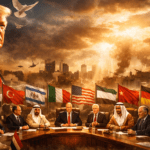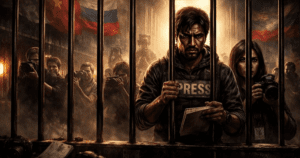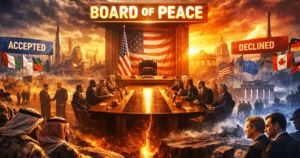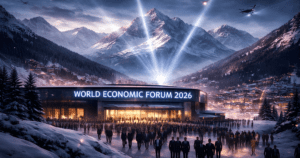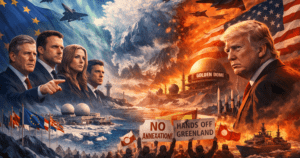Amid intensifying global conflicts and shifting geopolitical fault lines, Russia and North Korea have entered a new era of strategic cooperation, deepening their political, military, and economic ties in what both sides are calling an “invincible fighting brotherhood.” The alliance gained momentum following Russian President Vladimir Putin’s high-profile visit to Pyongyang on June 18, 2024, during which he and North Korean leader Kim Jong Un signed the Treaty on Comprehensive Strategic Partnership. This formal defense pact, which took effect in December 2024, outlines mutual commitments to military assistance, political coordination, and economic development representing one of the most significant bilateral alignments since the Cold War.
Over the past year, the alliance has expanded dramatically. In June 2025, Russia’s Security Council Secretary Sergei Shoigu made two visits to Pyongyang within weeks, finalizing an agreement to send around 5,000 North Korean military construction workers and 1,000 deminers to assist in rebuilding Russia’s war-torn Kursk region. The move underscored North Korea’s active support for Russia’s war efforts in Ukraine, both in labor and combat. Intelligence sources estimate that North Korea has already provided roughly 12 million artillery shells to Russia accounting for nearly 40% of its ammunition supply and has deployed approximately 14,000 troops, including special forces and engineers, to the Ukrainian front lines. These deployments have allowed North Korean forces to gain real-time combat experience, particularly in drone and missile operations, which analysts say could bolster Pyongyang’s future military threat in East Asia.
In July 2025, Russian Foreign Minister Sergey Lavrov visited the North Korean port city of Wonsan for a three-day strategic dialogue with top North Korean officials. During the visit, Kim Jong Un publicly reiterated his “unconditional support” for Russia’s position in Ukraine and denounced Western involvement in regional security alliances. Lavrov praised North Korea as a “reliable and time-tested partner” and advocated for stronger coordination on international platforms. These visits reflect a growing diplomatic rhythm between the two countries, signaling more than just short-term cooperation—this is a calculated long-term alignment aimed at challenging the dominance of the U.S.-led global order.
Economic collaboration has also intensified. In July 2025, Russia launched the first direct commercial flights between Moscow and Pyongyang in years, operated by Nordwind Airlines. The route, priced at approximately $550, quickly sold out demonstrating both symbolic and practical expressions of their renewed ties. Trade between the nations is booming, with Russia importing North Korean goods ranging from apples and sausages to fishing boats. Infrastructure projects are also in development, including a new $100 million bridge over the Tumen River and a revived 10,000-kilometer rail corridor that would facilitate deeper integration between the two economies.
This alliance is emerging at a time when both nations face growing isolation from the West. For Russia, the war in Ukraine has resulted in sweeping sanctions, diplomatic censure, and a need for alternative supply chains. North Korea, similarly constrained by decades of sanctions and limited Chinese support, sees Russia as a valuable partner for technological aid, investment, and diplomatic backing. Both countries share a deep animosity toward U.S.-led coalitions and perceive a mutual benefit in confronting what they see as Western encirclement. Their partnership also challenges the U.S., South Korea, and Japan, who are themselves deepening trilateral cooperation, prompting concerns about a spiraling security dilemma in Northeast Asia.
The growing alliance has sparked alarm among Western nations and international security experts. South Korea and Japan fear that North Korea’s battlefield experience and enhanced weapon systems will increase regional instability. Meanwhile, the United States and its allies are struggling to address the apparent violations of UN sanctions stemming from Pyongyang’s weapons transfers and labor exports. Analysts warn that this Russia-North Korea alliance could lay the foundation for a new multipolar axis of power undermining the post-Cold War order and potentially destabilizing multiple regions.
As global tensions continue to escalate, the deepening ties between Moscow and Pyongyang mark a significant strategic realignment with long-term implications for regional and international security. The once-marginal relationship has evolved into a bold, open partnership, militarized, economically interlinked, and ideologically unified against the West.










